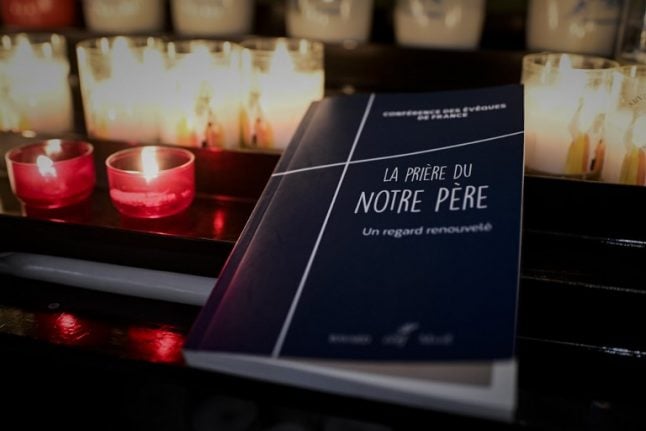
RELIGION
French churchgoers to recite new version of the Lord’s Prayer
French churchgoers will begin reciting a new version of the Lord's Prayer on Sunday in which God will no longer have a direct hand in their temptation.
Published: 1 December 2017 09:19 CET

Photo: AFP
The traditional line in the English version, “Lead us not into temptation”, has for decades been rendered in French as “Ne nous soumets pas a la tentation” (“Do not submit us to temptation”).
From now on French worshippers will ask the Almighty: “Ne nous laisse pas entrer en tentation” (“Do not let us enter into temptation”) — shifting the onus of sin more firmly onto the shoulders of the sinner.
The line has long been a subject of debate among theologians. To some, the idea that God could do the work of the devil was absurd; to others it was downright blasphemous.
The current translation has been used since 1966, after the modernising Second Vatican Council ushered in the use of the vernacular instead of Latin in Catholic masses around the world.
It was first rendered in Greek by the apostles Matthew and Luke, who were themselves translating the words of Jesus speaking in his native Aramaic.
“In itself the translation wasn't wrong, but the interpretation was ambiguous,” said Monsignor Guy de Kerimel, the French Catholic Church's chief liturgist.
The new version has also been adopted by France's much smaller Protestant Church.
The Lord's Prayer is one of the few that most Christian faithful know by heart.
“There's going to be some mumbling for a while” as worshippers adjust to the new words, Kerimel said.
READ ALSO:

Photo: AFP
Url copied to clipboard!


 Please whitelist us to continue reading.
Please whitelist us to continue reading.